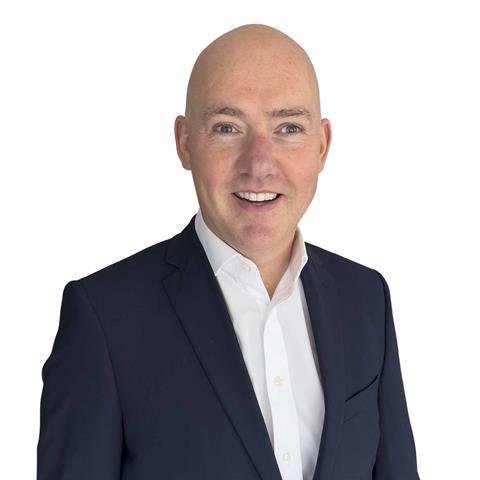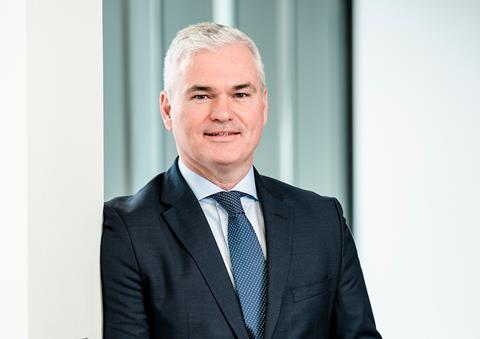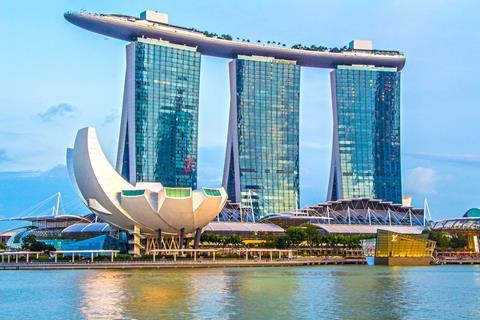The consultancy’s founder and group CEO on getting the basics right, thinking big and surviving the challenges of the covid pandemic

Why did you choose construction as a career?
I was determined to be the first person in my extended family to go to university, but I also wanted to earn money. The only two courses in Scotland that offered a part-time degree were accountancy and quantity surveying.
I thought with quantity surveying I would get out and about a bit more - but to be honest, I had no idea what a QS did. I am just lucky because I absolutely love it and hopefully people I’ve worked with think that I am not too bad at it either!
What has been the biggest challenge of your career to date?
The covid pandemic was the first ‚Äúblack swan‚ÄĚ event that I had to deal with since I started Soben. With so much uncertainty, I put the business on a war footing: implemented business continuity plans and immediately cut all expenditure on activities that were not directly associated with the delivery of services to our existing clients.
I am a great believer in open communication with our team. I set out the potential worst-case scenario if all fee earning work came to a halt ‚Äď ie there would be significant redundancies. I asked all staff to accept a temporary pay cut to ensure that we could retain as many staff as possible ‚Äď and we said we would review this every three months. Without exception, everyone agreed to this and we implemented the cuts in May 2020.
As trading conditions became more certain and were not as bad as anticipated, we reversed the pay cuts in July 2020 and repaid all the salary deductions that had been taken in May and June. That created a huge amount of goodwill and loyalty to the business from our team.
If you could change one thing about the industry, what would it be?
To break the low margin/claims cycle. About 99% of construction projects are prototypes and it would be great to see the margins more equitably shared between funders, developers, contractors and suppliers to reflect the risks being taken.
I think this could be partly achieved by greater adoption of an integrated project delivery model, whereby all parties involved in the construction process have a shared interest in a commercially successful project.
What have you worked on that you’re most proud of?
When Soben first entered the London market we supported Lendlease at the estimating and procurement stage of Google’s new HQ in London. Being involved in that project really put us on the map.
Most helpful advice you were given?
When presenting figures, check them, check them again and then check again one final time before issue.

What single piece of advice would you give to someone just starting out in your profession?
Spend time learning the basics. We are seeing graduates coming out of university without having the skills to read a drawing and carry out measurement. I truly believe that these skills form the fundamental basis of so much of our profession. Getting those right gives you a strong foundation to excel at estimating, procurement and change management.
Who do you most admire in the construction industry?
Vince Clancy. He has overseen the growth of T&T into the world’s largest cost consultant. If I can achieve half of what he has, I would be happy. Perhaps I’ll be lucky enough to have a coffee with him one day!
What’s your favourite building in the world?
The Marina Bay Sands in Singapore. For me it is the epitome of architectural vision and engineering excellence. I love the fact that, in a presentation, someone said: ‚ÄúRight, let‚Äôs build three 55-storey towers and put a swimming pool on the roof that spans across all three.‚ÄĚ

What famous building do you wish you had worked on?
The Sagrada Família in Barcelona. Work started in 1882 and is still not finished. It would have been great to be earning a fee on a project for over 140 years!
Which famous building do you most dislike?
The Scottish Parliament at Holyrood in Edinburgh. I think its post-modern design is too polarising for such a significant building. I don’t see it passing the test of time - it is already starting to look grubby and outdated.
What’s it like being you?
Hectic. We have people from the west coast of the United States to the east cost of Australia, so our business is essentially a 24-hour operation. I have worked hard at time management and compartmentalsing my work. I highly recommend the book 15 Secrets Successful People Know About Time Management, by Kevin Kruse.

What do you think your best quality is?
Relentless drive and determination. I will never give up until my goals are acheived.
What trait do you most dislike in yourself? And in other people?
In myself: I can be impatient and sometimes that can manifest itself in frustration. I am working hard not to jump to conclusions when things don’t happen to the timescales I expect.
In other people: Arrogance. I believe it’s an insecurity.
Do you have a life philosophy?
Think big ‚Äď you only have one life, so why not? It takes the same amount of brain effort. I also practise gratitude ‚Äď it‚Äôs important to reflect on the small things that matter.
Name three things that you like
Formula 1, musicals and reading business books.
What’s a secret skill we don’t know you have?
I can flick my cheek and make it sound like a tap dripping!
What’s your most prized possession?
A set of cufflinks that my dad gave me shortly before he passed. He was the most hard-working person I know and would always say how proud he was of me. I often have them in my pocket if I am going to an important meeting or presentation.
Early bird or night owl?
Early bird.
What’s your favourite food?
Gambas pil pil (garlic and chilli prawns), preferably eaten in the sunshine with lots of crusty bread and a glass of rose wine!
What would your superpower be?
The ability to fly. Not only would it enable me to cut down the time I spend travelling on business, it would help me to put things into perspective.




























No comments yet